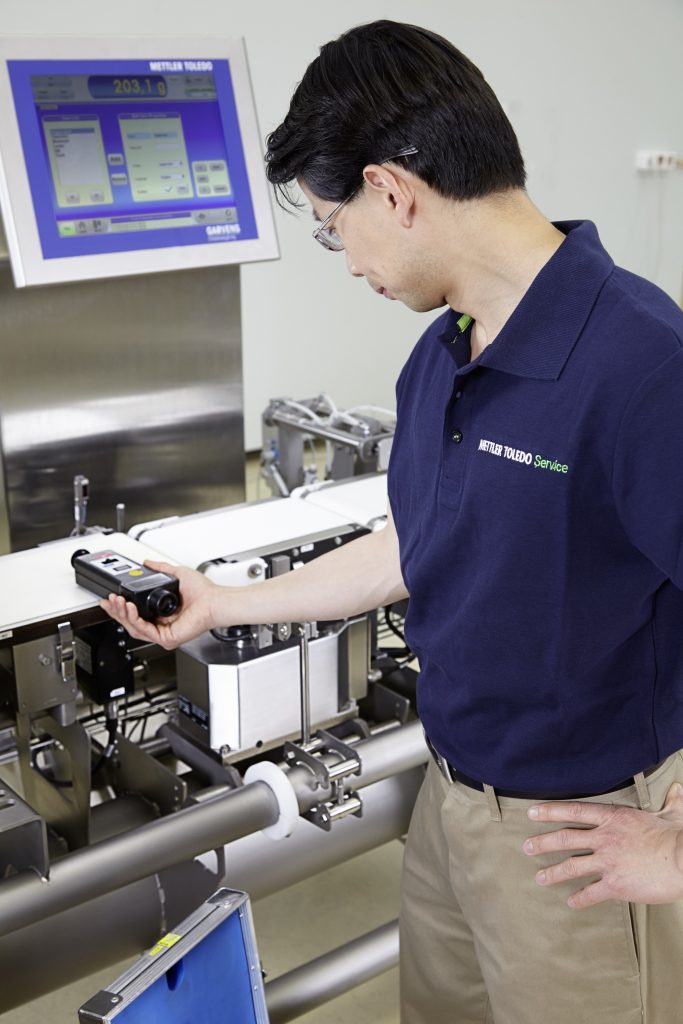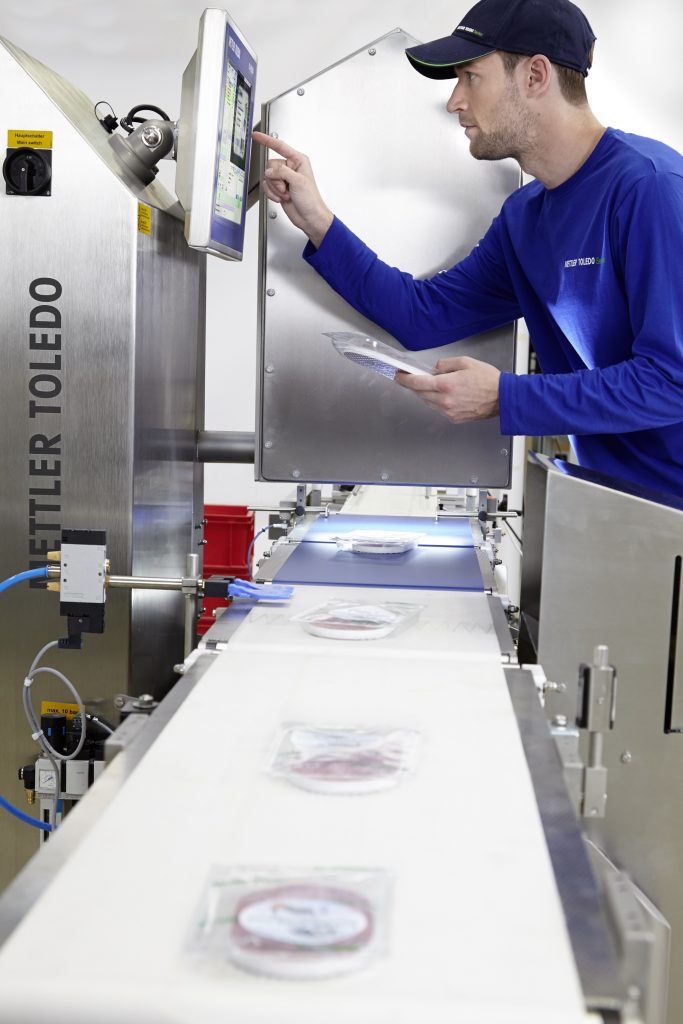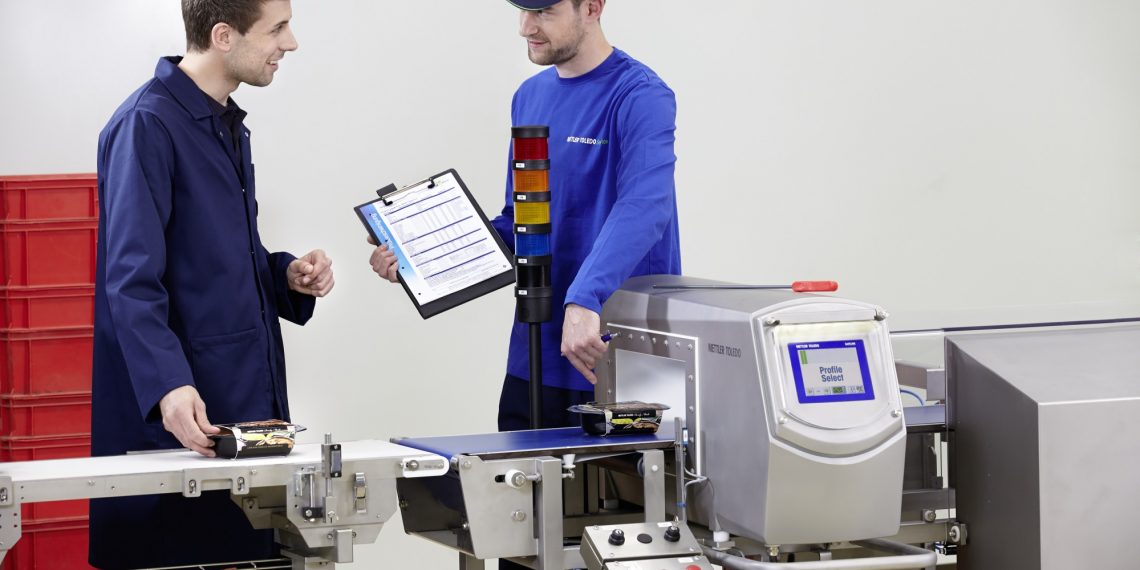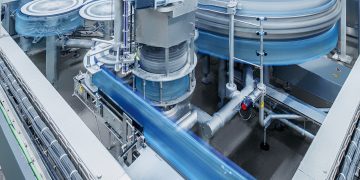As a food or pharma manufacturer, product inspection should be a high priority for you. On any production or packaging line there is potential for contamination or inaccurate production results, leading to products that are unsafe, incomplete or damaged. Product inspection equipment maximizes product quality, maintains Overall Equipment Effectiveness (OEE), supports manufacturers in their efforts to comply with regulations, and helps to protect their reputation.
There are many different suppliers of check weighing, metal detection, x-ray and vision inspection systems, and they will each have their sales pitches at the ready to explain why their product inspection systems are best. What about after you buy the equipment though? How do they support you with after-sales and ongoing service support? It is very important that food and pharma manufacturers understand the service capabilities of their product inspection equipment supplier, before they take the plunge and invest in their kit. They need to ask them some serious questions, and the following are a good place to start:
1. Why should I invest in service for product inspection equipment?
Let’s start by observing that some product inspection technologies, such as x-ray and metal detection systems, usually work as a critical control point – why wouldn’t you invest in keeping them working perfectly? These technologies plus checkweighing and vision inspection are also critical to support compliance with different safety standards. Beyond that, machine downtime is expensive – it’s hard to quantify exactly how expensive, because every situation is different, but for certain it is likely to be thousands of dollars per hour. A service contract can pay for itself very quickly if it saves just a single hour of lost production. So maximising machine uptime is a strong start in justifying investing in service, but it is not the only justification. Service not only keeps product inspection machines working, but it also keeps them working at optimum performance levels. These are levels that ensure products are inspected accurately, with fewer false rejects, facilitating compliance with stringent product safety standards. So: productivity, profitability, cost control, quality assurance and support of compliance are all good reasons to invest in service.

2. What resources are available for service support?
In many ways, this is a true measure of the company you are dealing with. Many claim to have global service coverage, but is this really backed up by numbers of skilled engineers, and the supplier’s ability to respond speedily when needed, anywhere in the world? Factors such as remote support are important too or, in fact, critical, since many equipment faults can be fixed without needing a visit from an engineer. However, a truly committed product inspection technology supplier will have the technical manpower to offer short response times when you most need them, for example for urgent repairs, no matter if remote or onsite.
3. What support will I get at start up?
Your supplier should ensure that your product inspection technology is set up correctly for your specific product and packaging requirements from day one. This means that it operates at its highest performance to accurately inspect your product straight away. The details behind this set-up should be documented, in accordance with the quality requirements for products in regulated industries such as food and pharma.
The documentation must also cover the commissioning processes to your requirements, performance verification to ensure optimised operation right from the start, and initial training for basic operation, maintenance, and core procedures. This documented information is used to support compliance and audits.
Within the food industry, there is also the Standard Qualification for machine commissioning, which is designed to support compliance with pharma and food safety standards and provide peak performance, high accuracy, consistency, and a fully auditable documentation trail.
4. What levels of service care do you offer?
You should look for some flexibility in choices of service level contracts, from a basic level of care, up to more comprehensive, perhaps even premium level packages. This is important because it demonstrates that the supplier recognises that customers are unique. Applications and production requirements differ from one to another. A one-size-fits-all approach is therefore not appropriate and is likely to constrain and frustrate all but a few companies. Some degree of tailoring of service care levels should be possible.
Ultimately, you want to know that your supplier understands the pressures you are under, and that they are committed to being there when needed.
5. What kind of training do you offer?
As much as technology is a great enabler, human skills are still the silver bullet. Initial training should be a key part of the start-up process, as we touched upon earlier. It should include at least basic levels of safe and efficient machine usage for operators. Additional comprehensive trainings such as fault finding and fixing, and replacement of worn parts by operators and maintenance staff, plus areas such as performance optimisation, equipment verification and compliance support for quality assurance staff are also available.
But your supplier’s commitment to training provision should not end there. It is a fact of business in manufacturing and packaging that staff turnover rates can be high. Regular refresher training courses – at least once per year – will be necessary for you to keep getting the most out of your staff and your product inspection systems.
Training could be delivered by a mix of on-site, practical sessions, and remote, theoretical sessions. The most effective in imparting knowledge that sticks will be the on-site training, and you should look for commitments in this regard. A supplier that is committed to you and your needs will have the resources to deliver these levels of training. As mentioned in the answer to question two, the resources available for service might be seen as a direct reflection of the true stature of the supplier. Likewise, an unwavering commitment to delivering ongoing training tells you a lot about the company you are dealing with.
6. How can you help me keep inspection systems running at optimum performance levels?
It is everybody’s goal to achieve consistently high levels of performance from product inspection machinery, but it doesn’t just happen, day after day, without a little care and attention delivered at the right time. It is important that a professional technician checks your product inspection systems at least once a year. However, regular maintenance and servicing are also important, whether carried out by external or internal trained service technicians to carry out more basic tasks such as replacing worn parts. This can prevent greater problems down the line, keeping you running at optimum productivity and accuracy. A strong service supplier can support you to build up the right skills in your team.
You also need to make sure that the equipment is performing as it should – for example, that x-ray sensitivity is running at the right level for the application. These things can slip below the standards needed if not regularly checked and corrected, which might compromise product quality and compliance.
Therefore, your supplier should instil in you and your operators the importance of testing. It should become a part of your factory floor culture. Further, they should provide you with the means to test effectively, with calibrated and certified test weights (for checkweighers) and contaminant test samples, that quickly and easily enable you to verify that product inspection equipment is operating within the standards and regulations that you need to comply with. Using these test samples and weights is vital – don’t trust a few “good” products pulled from a production run as test samples. You cannot be sure that they will continue to give you an accurate result.
7. How can you help me keep inspection systems running without unnecessary downtime?
To avoid downtime, firstly you should organise preventive maintenance and regular service visits which will help your inspection system to stay in good working condition. For example, by replacing worn out parts before it becomes critical for your production. A range of servicing interventions can be handled remotely these days, with diagnostics sensors in the machines advising your supplier of performance issues before you even know about them. In addition, you should look to take advantage of spare parts kits, which allow your maintenance staff to react immediately when lower-level repairs are needed.
The second consideration is that you may not be able to avoid downtime, however you can minimise it. This can be achieved by having the right support structures in place such as 24×7 remote support, quick response times and local technicians to visit your manufacturing plants.

8. How can service provision support me in meeting compliance requirements?
This begins with equipment commissioning right at the start. You should ask for documentary evidence that your product inspection technology was set up to perform at the necessary standard. Thereafter, regular servicing and maintenance help to keep the machines in good shape, but there can still be a drift in performance levels, such that would invalidate claims to compliant performance.
Machinery suppliers should be able to provide verification services, regularly testing your equipment and providing verification that its operation remains within specifications. This will also support compliance with the regulations you need to meet.
9. What if I want to upgrade my kit instead of buying a new machine?
It’s another fact of life that even the shiniest bit of new kit gets old one day. The onward march of technology development is inexorable in its quest for more performance at less cost. But of course, buying every new model of a product inspection technology is expensive.
So, investigate the upgrade paths and refurbishment options that your supplier offers. Regular performance tweaks and refits of your product inspection technology might keep it working profitably on your production floor for years beyond its normal or expected lifespan. Across the breadth of product inspection technologies, there may be opportunities for software upgrades that boost capabilities, and hardware upgrades or refurbs on components such as load cells in checkweighers, that can put off that next big capital investment for years.
And when it does come to the time when a piece of equipment needs to be replaced, a supplier might offer a phase out service that will dismantle, remove and recycle the existing system, replacing it with a successor solution that is directly upwards-compatible, making integration and training processes much more straightforward. That could prove to be very important.
10. How do you see your service provision developing in the future?
There will be more and more that suppliers can do around the collection of data from product inspection machines, which will enable them to diagnose system issues earlier, and deliver service interventions that improve overall equipment effectiveness and reduce downtime. These might increasingly be carried out remotely, and also through Augmented Reality (AR) technology, with users interacting with real-world objects by placing virtual spatial markers, highlighting aspects and adding text annotations to a live video stream of the product inspection equipment. Using AR, engineers could deliver full diagnostic and repair services for both hardware and software, as well as operator training, and start-ups and set-up of new product inspection equipment, and this will help to maximise production line uptime, save costs and support with social distancing requirements.
All of these developments will help to reduce the number and frequency of service engineer visits that are needed to keep product inspection equipment running at peak performance. However, suppliers should remain committed to substantial field engineer resources that maintain face-to-face visits and ensure that mission-critical product inspection equipment continues to operate at peak performance.
Conclusion
In food and pharma manufacturing and packaging, product inspection is a critical function – the guardian of product quality, customer safety and brand reputation. It is too important to not support with comprehensive service provision – indeed, it should rightfully be accorded a similar weight of importance as the kit itself. Manufacturers and brand owners should be prepared to ask all these questions, and to listen very carefully to the replies.
For more information: www.mt.com/service-pi-pr



















